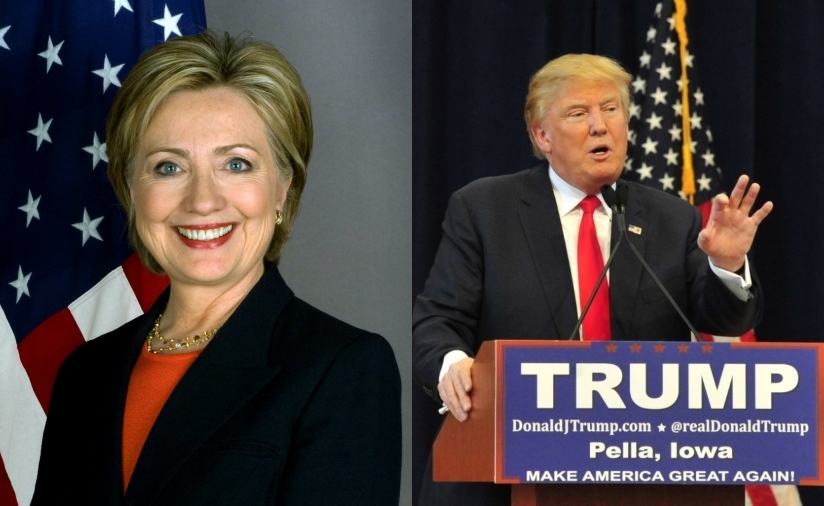Anti-Trade Movement Will Hurt State
Wisconsin is a net exporter of products, yet Trump, Clinton, Feingold oppose global trade pacts.
ASHLAND – If you live and work in this Lake Superior community of 9,000, where Bretting Manufacturing is the largest employer, the proposed clamp-down on foreign trade by both presidential candidates comes off as crazy.
Bretting is the ultimate advanced manufacturing enterprise. It employs 450, including 100 engineers, who build paper-converting machines for making napkins and towels that cost from $1 million to $10 million. These are good jobs, paying as much as $24 per hour for unionized positions on the floor. Bretting is an employer of choice in this city.
Note: about half of Bretting’s orders come from customers outside the United States, from 39 different countries.
Machines on the floor last week were destined for places like Egypt, Jordan, Saudi Arabia and Dubai. One ocean-borne delivery can entail up to 40 containers, meaning different engineering specifications than for machines delivered over land in North America.
In short, Bretting is expert at exporting. It is entirely up to the game of world trade. And that game is the purest form of value-add for the America economy.
The relentless hardening of the dollar, made worse by Brexit and the surrounding uncertainties for the pound and euro, has already disadvantaged Bretting and other U.S. exporters.
That is why the blunderbuss comments made by candidates in the superficial presidential campaign are so disappointing in places like Ashland. The country’s exporters hardly need a politically motivated upheaval in the world of global trade. Trade deals need to be done with pragmatism, not xenophobic ideology, with surgical care, not with a sledge hammer.
Candidates Trump and Clinton both propound a retreat from the pending Trans-Pacific Partnership (TPP). So does Russ Feingold; Sen. Johnson has been non-committal. Recall that Hillary Rodham said TPP “sets the gold standard for trade agreements” in 2012 when she was Secretary of State. As Bernie Sanders pulled her to the left, she flopped to oppose it. (The Trump family imports its branded products from all over the world.)
Yet Trump is flat out opposed to TPP and other trade deals, like NAFTA with Mexico and Canada passed under President Bill Clinton with votes from both sides of the aisle. Studies on the impacts of NAFTA on the U.S. economy are mixed, but most concede we have gained as much as we lost in terms of jobs.
With either a Trump or Clinton win, TPP looks to dead in its tracks, and NAFTA will face renegotiation. So, where does the U.S, go from here on trade?
There can be no argument that low cost countries, especially China, have cost the U.S. millions of manufacturing jobs. That is especially true for dense commodity products that are cheap to transport, like electronic devices, apparel or small appliances. That horse is out of the barn.
It is that loss that works for Trump’s rhetoric, especially his attacks on China’s export strategies. On that count, there is substance to his broad-brush attacks. About half of our enormous trade deficit is with China.
But trade policy is a tricky business that cuts many ways. Bretting is an example. Half of its 450 jobs, of which 220 are union production jobs, hinge on trade. That is true even though the company chooses not to compete in the Wild West markets in Asia.
It does compete very successfully in other world markets; and neither a President Trump nor a President Clinton will want to mess with that success by a wholesale breech of existing trade deals. Rhetoric will have to meet reality after the election is over.
Remember that states like Wisconsin are net exporters in most years. Trade creates jobs here.
What would a pragmatic trade policy look like?
- Reset trade rules with China, no longer a developing country that needs trade help. Negotiate a bilateral, versus multi-lateral, trade pact with China. As Warren Buffet has suggested, use chits for China to export. If it adds imports of U. S. goods and services of, say, $100 billion, it gets $100 billion in chits for increased exports to the U.S. Call it “balanced trade” from this point forward. Allow the bilateral trade deficit to go no higher. Cap it.
- Cut similar bilateral deals with other trade partners to set similar balances.
- Stiffen penalties for thefts of American intellectual property. Cut back exports from sectors in other countries that are caught hacking U.S. corporations or violating their patents.
- Ditto for the hacking of American companies for cash. It’s epidemic. The hackers are often from China or Russia. Instead of looking the other way, insist that those countries crack down or pay a price on how much they can export to us.
The United States is the richest market in the world, by far. Every country wants to sell here. Much as Trump is off base on most positions, he is right about using our market leverage to bring about fair and balanced trade.
But balance is the key. We are net exporters to many countries.
David Bretting, CEO of a fifth-generation company, grimaces when asked about the simplistic attacks on trade made by politicians who know better. “It’s crazy,” said the exporter.
Beneath their rhetoric, we hope they know better. (My company exports, too.)
John Torinus is the chairman of Serigraph Inc. and a former Milwaukee Sentinel business editor who blogs regularly at johntorinus.com.
Op-Ed
-
Wisconsin Candidates Decry Money in Politics, Plan to Raise Tons of It
 Dec 15th, 2025 by Ruth Conniff
Dec 15th, 2025 by Ruth Conniff
-
Trump Left Contraceptives to Rot; Women Pay the Price
 Dec 8th, 2025 by Dr. Shefaali Sharma
Dec 8th, 2025 by Dr. Shefaali Sharma
-
Why the Common Council’s Amended Budget is Good Policy for Milwaukee
 Nov 20th, 2025 by Alds. Marina Dimitrijevic and Russell W. Stamper, II
Nov 20th, 2025 by Alds. Marina Dimitrijevic and Russell W. Stamper, II























Is there any evidence that Clinton or Trump will seek to impose any trade rules that would adversely affect Bretting’s ability to export its products? Your article leads us to that critical question and then never answers it (but implicitly suggests that they will). I haven’t seen either of them say they would do so.
So Bretting is doing great with their exports today. So his use of them as an example really doesn’t make any point around whether or not the TPP gets passed. But as you could probably guess by reading the headline Torinus doesn’t actually bother talking about what the TPP would entail, which has less to do with trade of any kind and has more to do with protecting intellectual property rights of large corporations and lowering wages for workers everywhere. Do five seconds of homework and realize what a bunch of crap this is. http://www.citizen.org/TPP
Torinus starts his op ed with a red herring: that not approving a trade pact such as TPP will harm the exports of a company in Ashland. He conveniently ignores the fact that this company is doing just fine at the current time without TPP in effect. Historical evidence indicates trade deals result in a few hundred “expediters” making billions while the working class see their wages driven down to third world levels. NAFTA was not good for the working men and women of this country and it was a disaster for 2 to 3 million small farmers in Mexico, who could not compete with subsidized corn and grain from Con Agra, Monsanto and other huge US importers to Mexico. The numerous US manufacturers who established maquiladoras (US owned manufacturing plants located in Mexico) in Mexico did so for one reason only: they could pay the Mexican factory workers 10% of what a US worker previously made for the same job. If trade deals are for any purpose other than to avoid paying US workers a living wage, why aren’t we negotiating trade deals with Switzerland or Sweden, where workers make more than in the United States. If TPP required all countries to pay U. S. wages and obey US environmental standards, there would be no TPP.